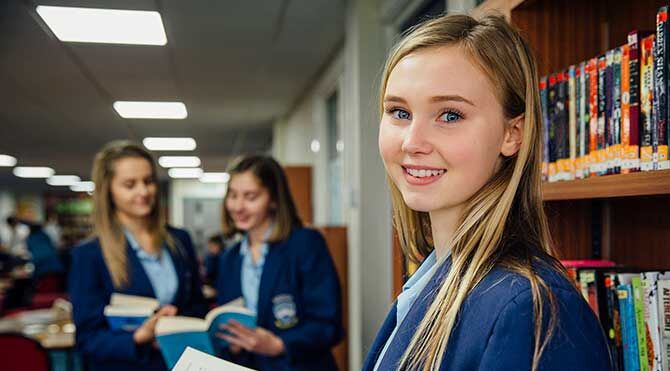State vs. independent education: does it really make any difference?
Is private schooling really worth the tuition fees? At November’s Independent Schools Show in Battersea Park, London, school heads came together to discuss the opportunities that a private education affords.

Is private education becoming more accessible?
With the benefit of scholarships and bursaries, some argue that an independent education is becoming more accessible and so is it something that parents should be actively seeking out?
The benefits of education at an independent school
“What I think is the purpose of a proper education…it’s not a commodity or something you can just buy – it’s knowledge, truth, understanding, thought, learning to have a sense of social responsibility,” said Katy Ricks, head of Sevenoaks School, an IB world school and winner of the Sunday Times Independent Secondary School of the Year.“If you’re an independent school, your gift is to go back to that first principal and ask what is it for? It’s not for a percentage of A*s to Cs; we’re not target-driven, we’re principals and values driven and at Sevenoaks we have adopted the IB because it embodies the search for the things that I’ve just talked about – enquiry, open-ended thinking, international outlook. It’s a balanced, broad, connected programme. It’s not just academic; it has the co-curriculum embedded in it.”Freedom: a defining aspect of independent schools
Patrick Derham, head master of Westminster school, – a school in which each year 45 per cent of the pupils are accepted by Oxford or Cambridge Universities – believes that freedom is something that defines independent schools. “It’s a huge sadness that not all schools in the country can offer what independent schools can,” he said.“The fact that we have the freedom to choose curriculum, the freedom to select staff, the freedom to choose the qualifications that we want to do. Yes, of course we’re accountable to parents and governors and of course results are important but we have the holistic view of education and are not constrained by Ofsted or target-driven bureaucracy and we have the freedom to innovate which means we can be so creative.”Related news:
- Is single-sex education still relevant today?
- School league tables: useful tool or source of confusion?
- Education reform in England: understanding the changes
Ms Ricks concurred, “Freedom to appoint staff is a big discriminator between private and state education. We can – and do – appoint anyone that we believe can contribute to our school in a good way. And that means people who have enthusiastic subject knowledge.“You have the capacity to appoint people who aren’t trained but have a natural talent and ability and you can train them in your environment. These are massive opportunities and it’s much harder to do that, sadly, in the state sector. It’s the freedom to deploy your staff imaginatively and creatively.”
Balancing excellent exam results with a broader education
State schools can become so constrained by sticking rigidly to the syllabus that teachers are often afraid to take liberties. Teachers can easily fall into the trap of ‘teaching to the test’.In independent schools teachers have less constraints as more value is placed on a ‘holistic’ education, as explained Ms Ricks, “Our two schools are extremely different: in history, in curriculum, in character but these are two schools where we both consider that the results are a by-product of something much more interesting – discourse, interaction, engagement with the world of knowledge and discovery.“I do want to reiterate that it’s not just about the lessons, it’s the conversations that we have across the campus that provide an intelligent ‘thinking’ environment for students who come to our schools and that’s why the results are so good.”Mr Derham said that teachers should be encouraged to take risks and not just teach to the test, as it is important that teachers go beyond the syllabus in order to excite and enthuse the students.“For example in our Pre-U English,” said Mr Derham, “they go into the first year 12 lesson and decide – with the students – what books they’re going to study. It’s so phenomenally stimulating for students. That’s a real privilege. It’s more of a university-style education.”It is this freedom and holistic approach to education that seems to be paying dividends. Both schools boast excellent exam results and demand for places is high and this pattern looks set to continue.Find out more about independent school options in the Winter issue of our magazine which features a boarding school supplement.
Relocate Global's Guide to Education & Schools in the UK 2017 is packed with expert education advice for those who are relocating and the professionals supporting them. Access your digital copy here.
For related news and features, visit our Education & Schools section. Look out for the launch of 2018's Relocate Awards, entries open in January. Relocate’s new Global Mobility Toolkit provides free information, practical advice and support for HR, global mobility managers and global teams operating overseas.
 Access hundreds of global services and suppliers in our Online Directory
Access hundreds of global services and suppliers in our Online Directory
©2025 Re:locate magazine, published by Profile Locations, Spray Hill, Hastings Road, Lamberhurst, Kent TN3 8JB. All rights reserved. This publication (or any part thereof) may not be reproduced in any form without the prior written permission of Profile Locations. Profile Locations accepts no liability for the accuracy of the contents or any opinions expressed herein.










































